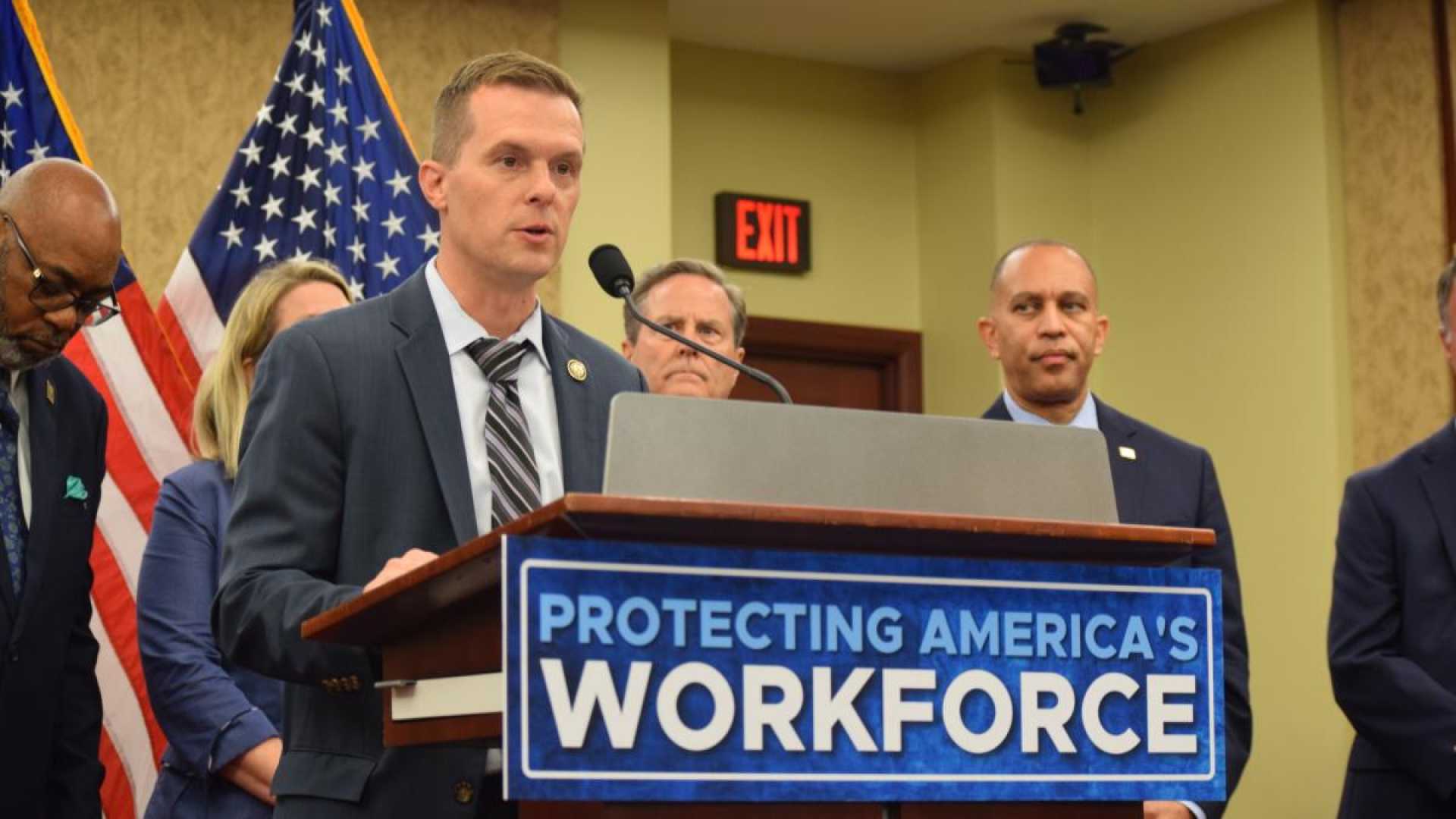Politics
Senate Introduces Bill to Restore Federal Union Rights Amid Pushback

WASHINGTON, D.C. — Senate Democrats introduced the Protect America’s Workforce Act on Wednesday, aiming to restore federal union rights that were curtailed by President Donald Trump. The bill comes as the House version approaches a potential floor vote.
The legislation seeks to nullify Trump’s executive orders that allowed federal agencies to terminate collective bargaining agreements with their unions, citing national security. If passed, the Protect America’s Workforce Act would reinstate these agreements affecting nearly a million federal workers.
All Senate Democrats have co-sponsored the bill, along with Senator Lisa Murkowski (R-Alaska). Supporters, including Senator Alex Padilla (D-Calif.), argue that Trump’s orders represent an overreach of authority under the Civil Service Reform Act of 1978, which permits the cancellation of collective bargaining for national security.
“Donald Trump’s executive orders ripping away collective bargaining rights from over a million federal workers constitute one of the biggest union busts in American history,” Padilla stated. He described the actions as a facade for retribution against unions.
The House version of the Protect America’s Workforce Act has gained traction since its initial introduction in April following Trump’s first executive order. It currently has 222 cosponsors, including seven Republicans. In June, supporters initiated a discharge petition to expedite the vote, which has now gathered 216 signatures, just two shy of the 218 needed for a floor vote.
History shows that discharge petitions rarely succeed, though a similar strategy last year successfully propelled the Social Security Fairness Act to passage. On the Senate side, the absence of a discharge petition may complicate efforts to advance the Protect America’s Workforce Act.
Federal union leaders express optimism that they will garner support from moderate Republicans. Since Trump’s orders were issued, various lawsuits have emerged, challenging their legality. Approximately 450,000 federal employees have already experienced canceled contracts as a result of these orders.
“These moves are an assault on our fundamental freedoms and undercut critical services people across the country rely on,” said Liz Shuler, President of the AFL-CIO.
Amid these changes, some federal employees at the Department of Defense might see a different pathway to restoring collective bargaining rights. The House-passed National Defense Authorization Act (NDAA) for fiscal 2026 contains a provision prohibiting the use of NDAA funds to enforce Trump’s executive orders within the DoD, effectively safeguarding collective bargaining for its civilian employees.
However, the Senate version of the 2026 NDAA lacks this exemption. Everett Kelley, President of the American Federation of Government Employees, emphasized the importance of collective bargaining rights in enhancing government operations and employee retention.
As the legislative battle continues, both sides keep a close watch on the evolving dynamics in Congress.












